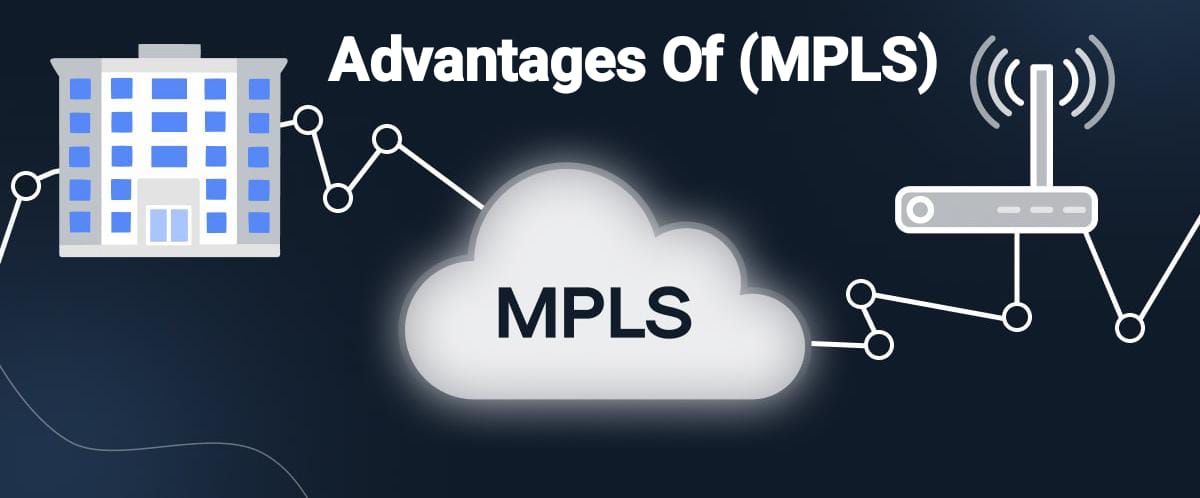Post Preview
Table of Contents
- Introduction to MPLS Technology
- Improved Network Speed and Efficiency
- Enhanced Security Features
- Scalability For Growing Networks
- Seamless Integration with Existing Infrastructure
- Cost Benefits of Adopting MPLS
- Quality of Service (QoS) Improvements
- Conclusion: Why MPLS is a Game-Changer
Introduction to MPLS Technology
Multiprotocol Label Switching, or MPLS, is a data-carrying technique in high-performance telecommunications networks. It sends data packets using brief path labels instead of lengthy network addresses, reducing the need for complicated searches in a routing table. This more efficient method dramatically improves the efficiency of transmitting data, allowing companies to manage large amounts more effectively. MPLS simplifies data forwarding by minimizing reliance on network addresses, resulting in improved data flow. This makes MPLS crucial for organizations aiming to improve operational efficiency and accelerate data processing.
Improved Network Speed and Efficiency
One of MPLS’s most compelling benefits is its ability to significantly enhance network speed and efficiency. By utilizing labels to direct packets, MPLS minimizes delays and reduces the processing load required at each router. This is particularly advantageous for applications with low latency, such as VoIP and real-time video conferencing. When each packet can follow a predetermined, optimized path, the overall network functionality is improved, reducing interruptions and maintaining a stable connection. Consequently, companies experience fewer hitches, enhancing productivity and a better user experience.
- Minimized latency: MPLS facilitates achieving low-latency connections, essential for applications requiring instant data transmission.
- Enhanced application performance: MPLS ensures faster and more reliable application performance by accelerating data flow.
- Optimal utilization of network resources: Efficient packet routing guarantees that network resources are utilized to their fullest potential.
Enhanced Security Features
MPLS boasts robust security features, making it a desirable option for businesses concerned about data breaches and security threats. MPLS establishes a private network over public infrastructure, inherently providing a layer of security that traditional IP routing lacks. This privacy ensures that data is less accessible to public surveillance, significantly mitigating the risk of cyber-attacks. Additionally, MPLS supports Virtual Private Networks (VPNs), facilitating secure connections for remote users. This is particularly relevant today, where remote work is becoming the norm. Discover more about the rising cyber-attack threat and how businesses leverage MPLS for enhanced network security.
Scalability For Growing Networks
As businesses expand, their networking needs inevitably grow. MPLS offers the scalability required to meet increased demands without compromising on performance. It allows enterprises to develop their networks incrementally, adding new nodes and increasing bandwidth as necessary. This flexibility is crucial for organizations that foresee rapid growth or experience seasonal spikes in network usage. With MPLS, companies can seamlessly scale their network capacity, ensuring performance remains consistent even as demand peaks. This adaptability makes MPLS a cost-effective solution for dynamically scaling network infrastructure, a vital aspect for growing businesses.
- Supports large-scale networks: MPLS handles extensive and intricate network structures.
- Flexible to changing demands: Easily scalable to meet evolving network requirements.
- Cost-effective network expansion: Minimizes the costs associated with scaling up network capacity.
Seamless Integration with Existing Infrastructure
MPLS offers a significant advantage in its seamless integration with existing network infrastructure. This means businesses can embrace MPLS without requiring extensive modifications to their current systems. Integrating MPLS is generally simple and requires minimal adjustments, allowing companies to experience the benefits swiftly. This effortless integration reduces downtime and minimal disruption to daily operations, facilitating a smooth transition to a more efficient and dependable network system. As a result, MPLS enables businesses to enhance their network performance without causing any significant inconvenience to their ongoing activities.
Cost Benefits of Adopting MPLS
While the initial setup of MPLS might be more costly than traditional IP routing, the long-term cost advantages more than offset these initial expenditures. MPLS can reduce the need for expensive hardware and streamline network administration, resulting in lower operating costs. Moreover, enhanced efficiency and reliability of an MPLS network can lead to productivity gains, translating into further cost savings. Refer to this in-depth assessment for a detailed understanding of the financial implications. The continuing savings and productivity improvements facilitated by MPLS make it a reasonable financial investment for numerous organizations.
Quality of Service (QoS) Improvements
Ensuring high-quality network service is crucial for modern networks, particularly those supporting mission-critical business applications. MPLS allows for the implementation of quality of service (QoS) measures, prioritizing specific types of traffic. This guarantees essential services such as voice, video, and critical applications receive the bandwidth necessary for optimal function. QoS mechanisms ensure that high-priority tasks are handled effectively, preventing network congestion and downtime. This enhances the overall user experience, offering reliable and consistent service critical for business continuity and operational efficiency.
- Prioritizes critical applications: Ensures essential services have the required bandwidth for optimal performance.
- Improves user experience: Provides consistent and reliable service for end-users.
- Ensures reliable service delivery: Effectively handles high-priority tasks, mitigating congestion.
Conclusion: Why MPLS is a Game-Changer
MPLS, or Multiprotocol Label Switching, is a sophisticated technology renowned for its resilience and adaptability. It is a standout choice for enhancing network operations. Designed to optimize network performance, MPLS offers many advantages that cater to the diverse needs of modern businesses. At its core, MPLS efficiently routes data packets through predetermined paths called labels, enabling faster data transmission and reducing network congestion. This streamlined approach enhances speed and improves overall network efficiency, which is crucial for supporting bandwidth-intensive applications and services.
Security is another hallmark of MPLS. MPLS ensures data integrity and confidentiality by establishing private, virtualized connections across different network nodes. This is particularly valuable for enterprises handling sensitive information, providing a secure framework that mitigates cyber threats and unauthorized access risks. Cost-effectiveness further underscores MPLS’s appeal. By consolidating multiple networks into a unified infrastructure, MPLS reduces operational expenses for managing separate networks. This consolidation simplifies network administration and maintenance, translating into tangible cost savings.
Stay in touch to get more updates & news on Hintinsider!




